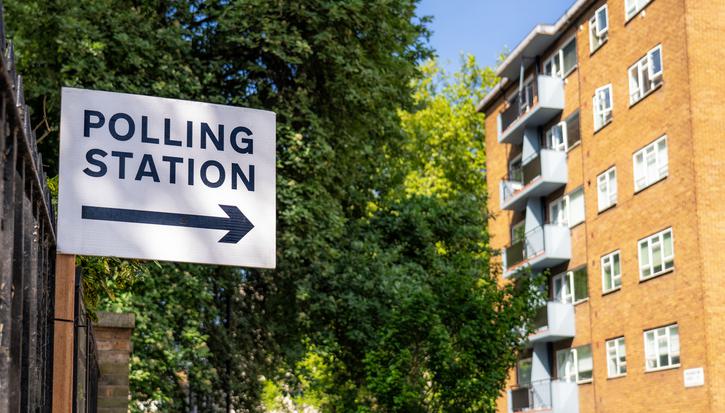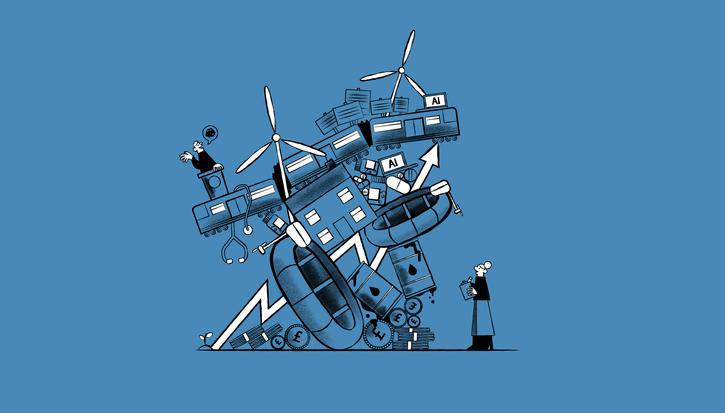How May can deliver her energy bills pledge
How May can deliver her energy bills pledgeArticle
In just a few weeks’ time, the Prime Minister looks set to use her speech to Conservative party conference to recommit to delivering on her pledge to make peoples’ energy cost less.
What’s more, we’re set to hear more about her plans to spread prosperity across all parts of the country – after a summer in which her commitment to the Northern Powerhouse agenda, started under Osborne, came under heavy scrutiny in the North.
The energy pledge, made back when she was riding high in the polls, saw her taking on ‘vested interests’ in the big energy companies to make consumer bills cheaper.
But since then, the elements of how such a policy will work have been caught in a classic Whitehall regulator-industry log-jam, with the big six energy companies and Ofgem yet to come to any kind of final agreement.
Meanwhile the PM has little concrete to show in the way of the vision she presented as a very different kind of Conservative Party – more interventionist and more positive in the way of the good government can do.
Given this, IPPR North has been exploring how to make consumers’ bills cheaper as part of our Northern Energy Strategy, launching next month.
In the report, we will set out a plan for the government to help reduce peoples’ energy bills – its ultimate objective – while creating growth across the UK.
By stripping energy companies of the taxpayers’ money they currently spend highly ineffectively to deliver energy-saving green homes initiatives – like wall or loft installation – and devolving this to energy operators themselves.
Putting the Big Six – who’ve got a vested interest in keeping energy usage high – in charge of energy saving is like putting the fox in charge of the henhouse.
Unlike the Big Six, the people who actually get the energy into consumers’ homes – the energy operators – have a direct incentive to improve energy efficiency to reduce the ever-increasing demands on the electricity grid and – working with councils, social enterprises and community energy projects - they are much more likely to have the local knowledge to get people signed up.
This would also help the PM show she’s interested in local growth and spreading prosperity across the UK.
Ed Cox is the Director of IPPR North, the North of England's progressive thinktank
--------
Energy price cap: how could it work?
- Currently, energy companies are funded to deliver ways for people to save on energy through e.g. insulation, double-glazing, with home improvements funded through future bill savings via an Energy Company Obligation (ECO).
- But energy companies have failed to get people signed up as they have little incentive to help people cut their bills.
- Bill-payers usually pay money to one of the big six, but these companies are not actually responsible for powering your home and helping smarter use of energy. In fact they are incentivised for you to use more energy as it boosts their profits.
- Energy operators, who are responsible for making sure we receive electricity and heat, have far greater incentives to reduce electricity demand and energy efficiency: reduced demand makes their job of maintaining the creaking infrastructure easier.
- They should be handed ECO money and then work with local councils, companies and cooperatives to deliver money-saving measures like double-glazing and wall installation, using their local links to sign people up neighbourhood by neighbourhood. These would be free up front and paid for by future savings on bills.
- Where similar schemes have been introduced they have delivered cuts in carbon by up to 60% and bill savings of up to £1,100 per year.
- This would be a creative way for the PM meet her overall goal to cut energy bills.
Related items

Modernising elections: How to get voters back
Elections are the defining feature of modern democracy. They are the process by which we express a desired future en masse. It is the mass dimension that matters most; it is the mass dimension that is receding.
Bridge to the future: how to get the NHS through the winter and ready for reform
NHS staff across the country are gritting their teeth. Christmas parties have come and gone, but a more threatening annual tradition looms once again – the NHS ‘winter crisis’. This period, renowned for long waits and increased mortality,…
The great enabler: transport’s role in tackling environmental crises and delivering progressive change
In this special issue of IPPR Progressive Review we bring together leading political, academic and civil society thinkers to consider transport in modern Britain and its role in delivering a healthier, greener, more prosperous and…